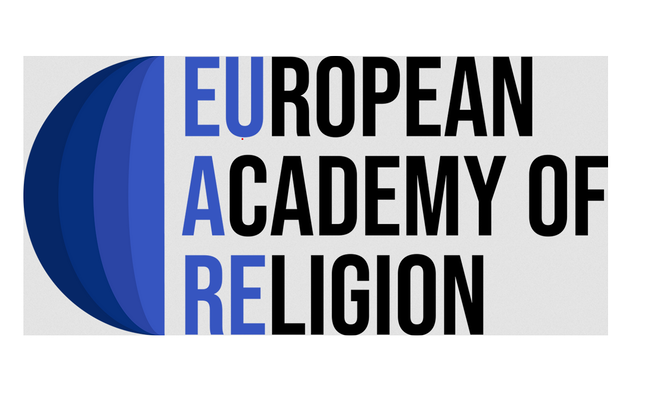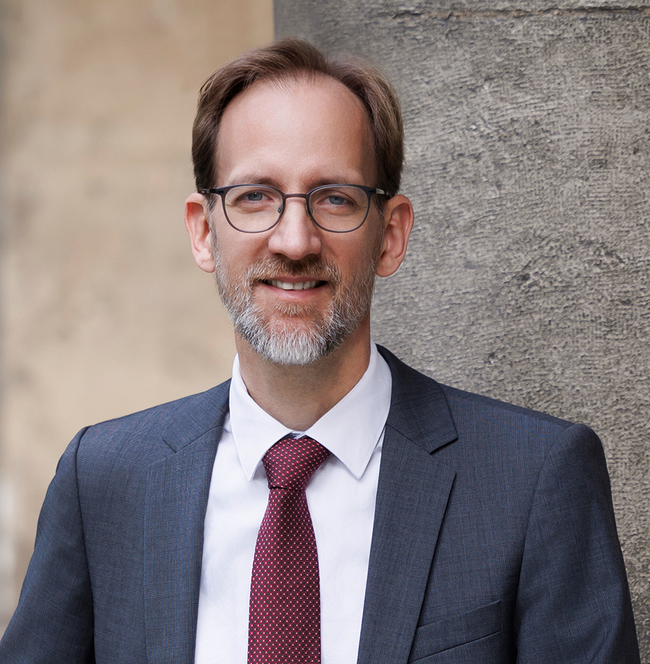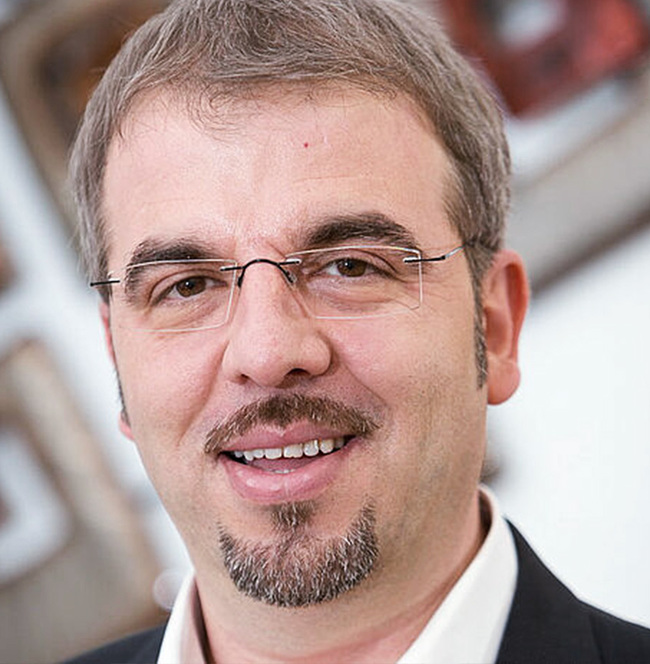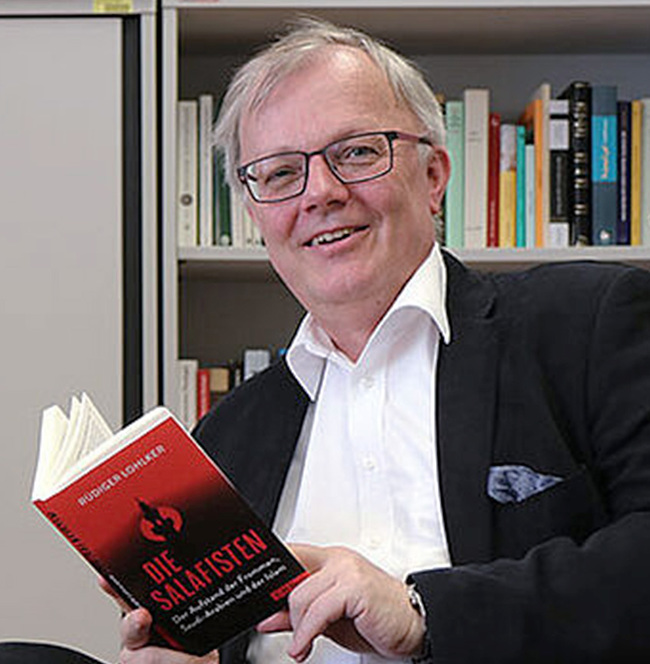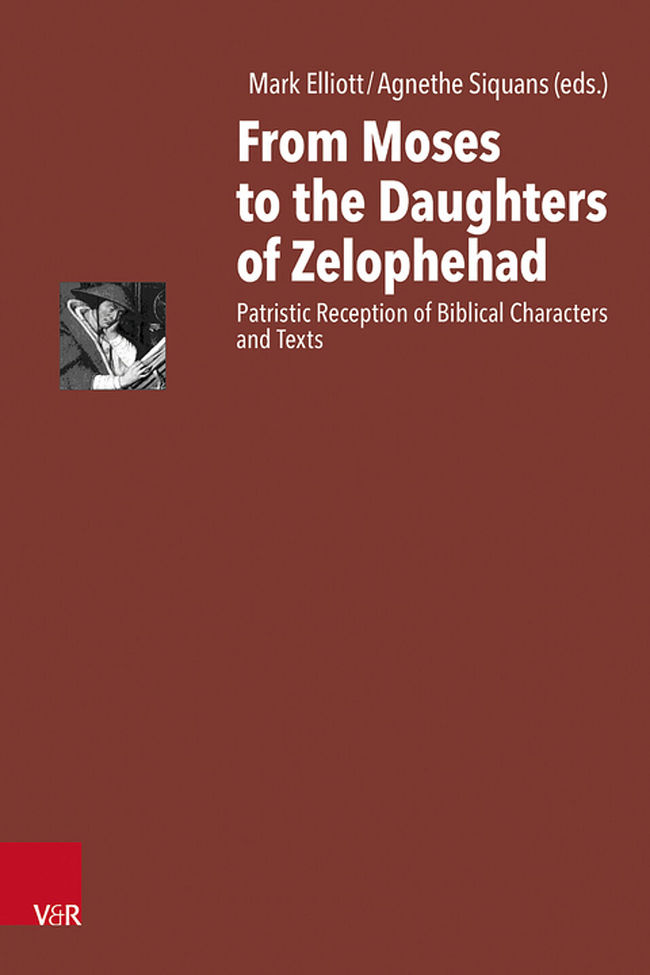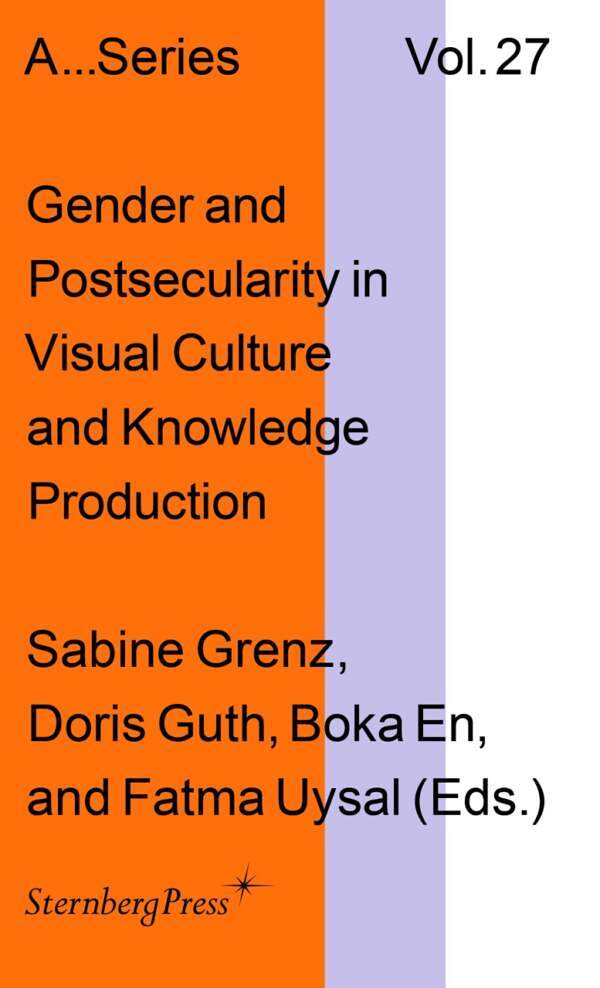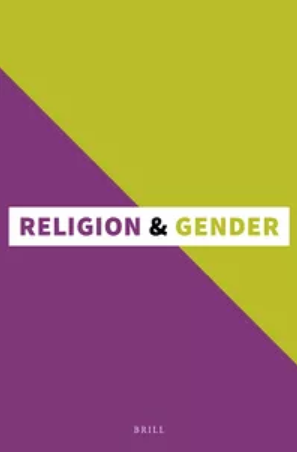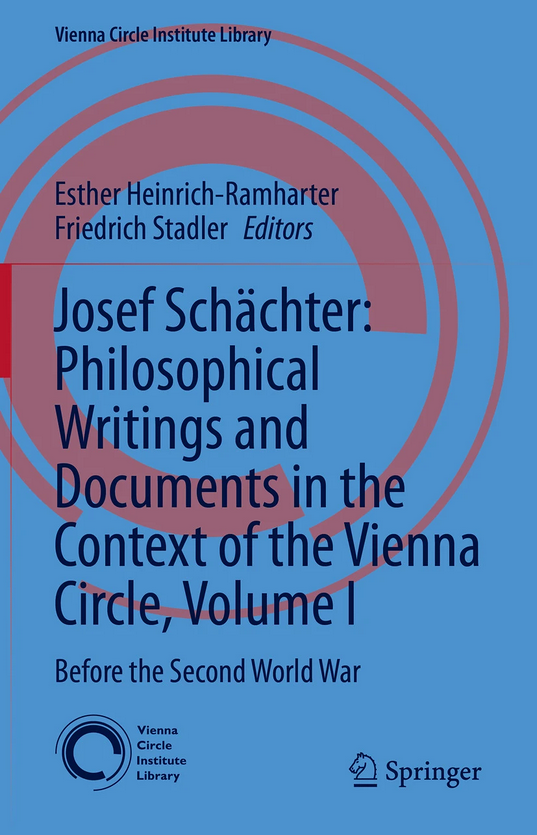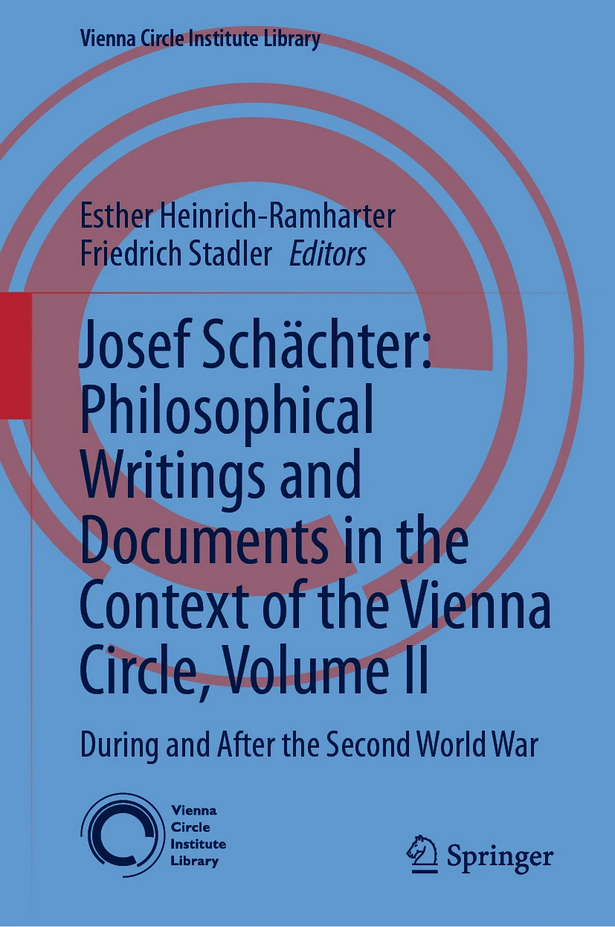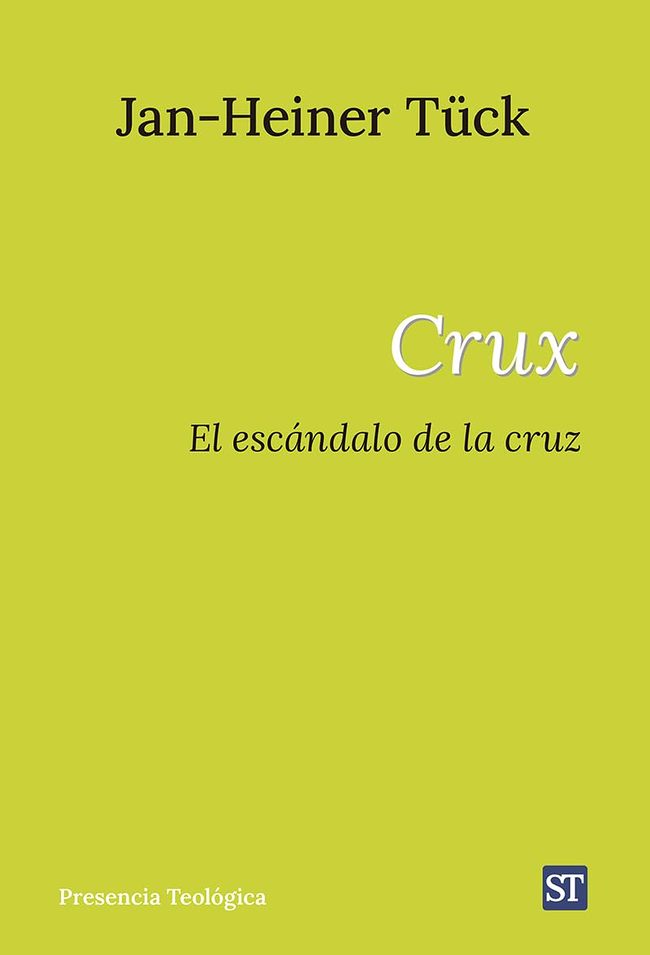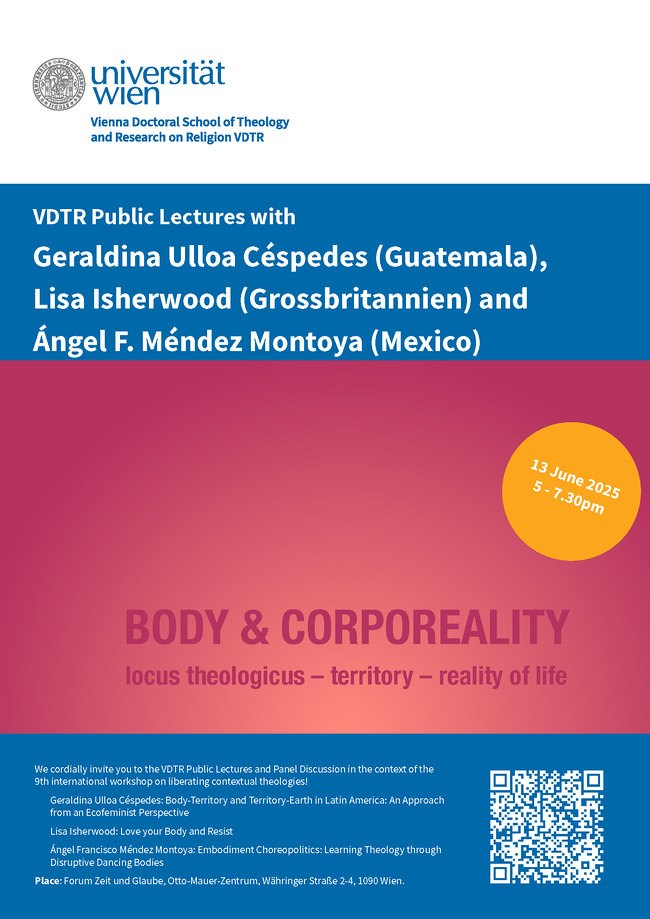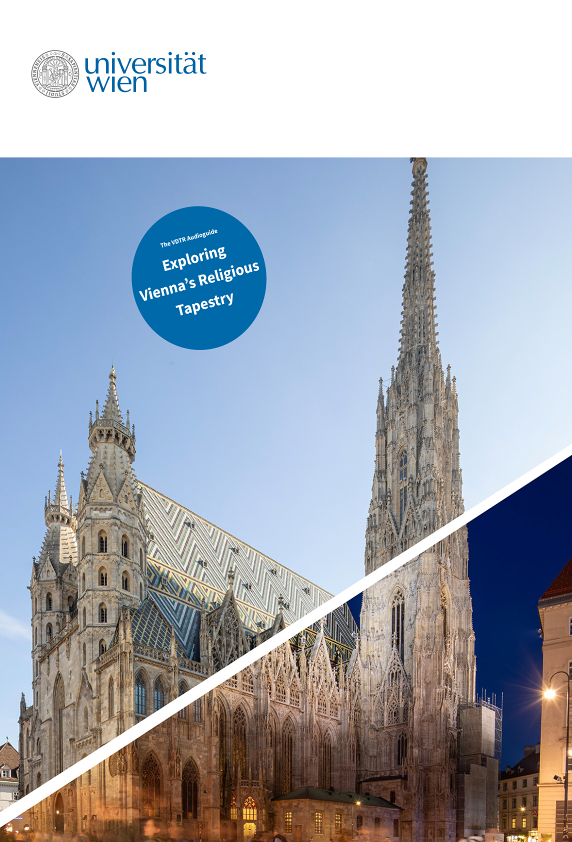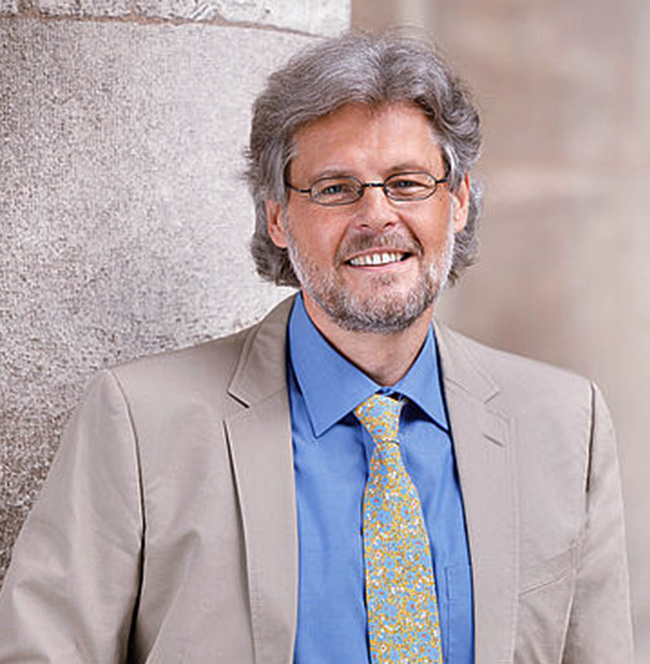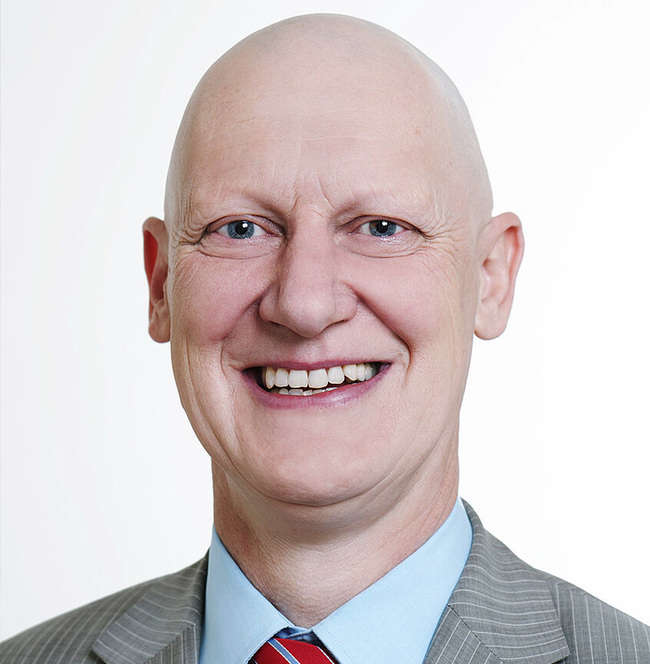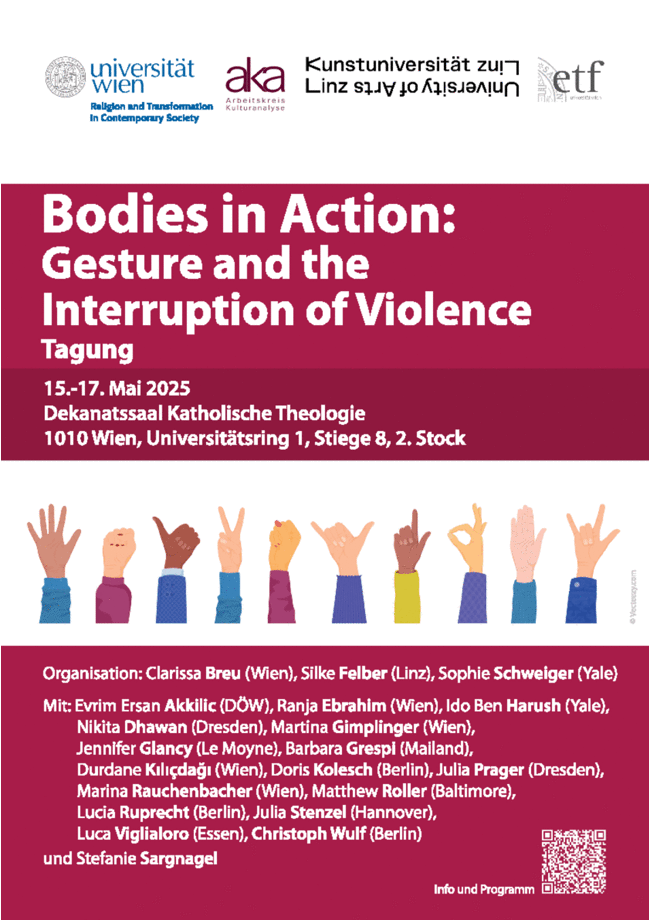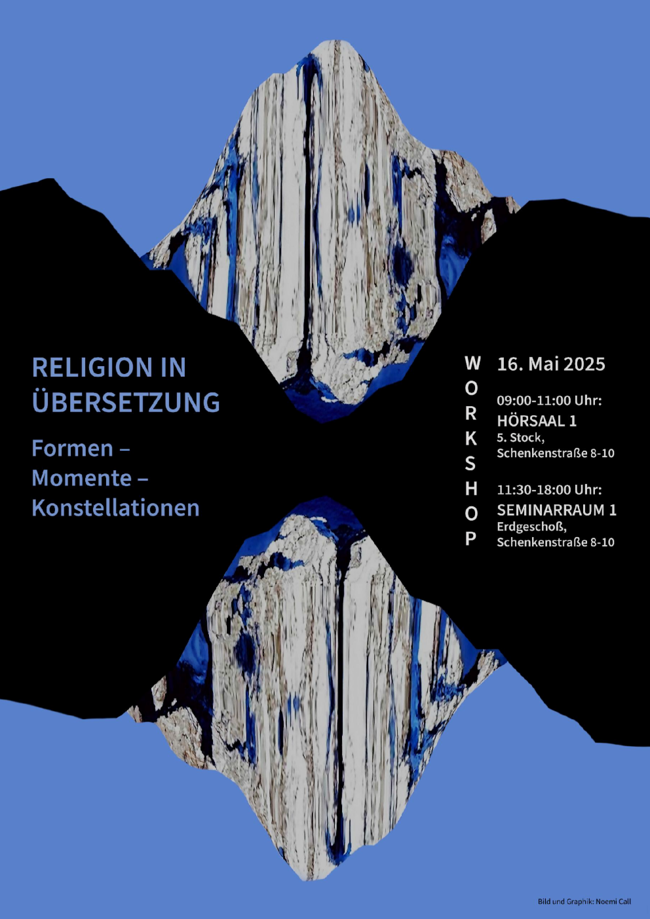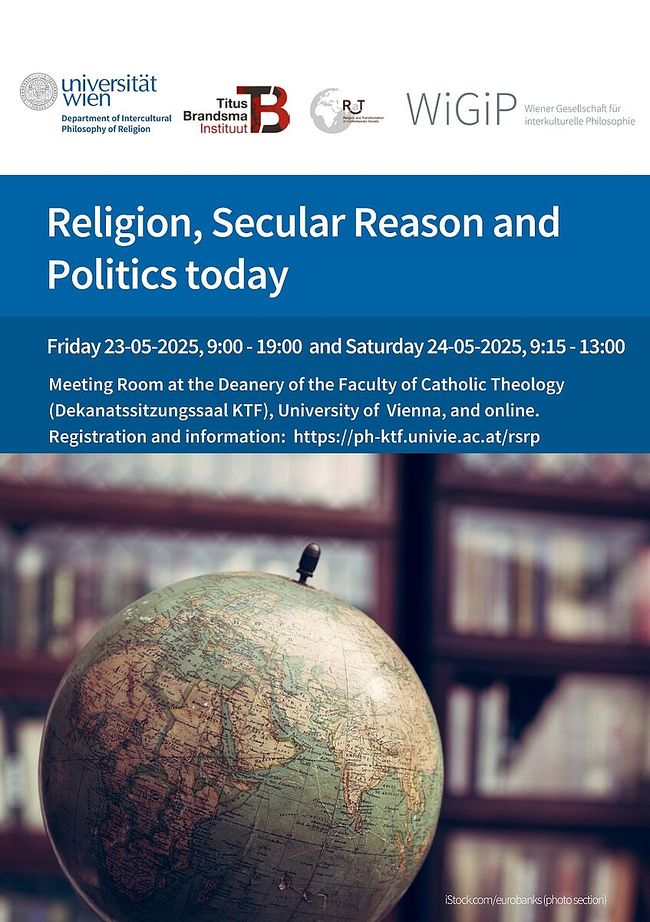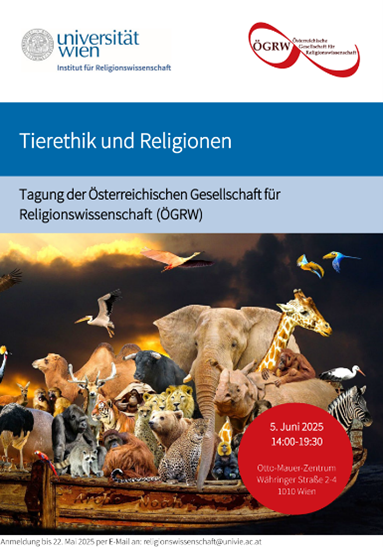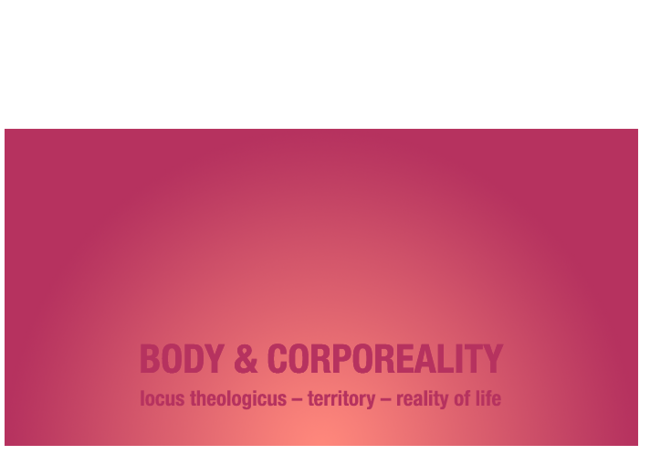|
|
Dear members and friends of RaT,
The May newsletter is here, and as always, it’s packed with a wealth of information and updates! In addition to updates on EuARe – the final conference program will be published in a few weeks – the newsletter, as usual, includes information on recent publications and newly funded third-party projects by our members. But first, we want to warmly welcome two new members to RaT: Thomas Mark Németh and Evan Sandsmark. You can find out more about thei research below.
This May and June, an especially high number of interesting events are taking place. We would like to specifically highlight the webinar on the latest issue of JRAT (1/2025): “Dancing with the Absence. Rethinking Theology with Michel de Certeau”, which will be held on May 17, from 2:00 to 3:30 PM, you can join the event via zoom.
In the coming months, there will also be two multi-day conferences focusing on the theme of corporeality: From May 15–17, the conference “Bodies in Action: Gesture and the Interruption of Violence”, organized by Clarissa Breu will take place, followed by the event organized by Gunter Prüller-Jagenteufel, *“BODY & CORPOREALITY. locus theologicus – territory – reality of life”, which takes places June 13–15.
Further information on all the mentioned events and much more can be found below in our newsletter. We wish you a joyful reading experience!
Kurt Appel, Noemi Call, Jakob Deibl, Marco Fiorletta, Sára Heidl, Sofiia-Olga Kungurtseva, Daniel Kuran, Magdalena Lorenz, Andreas Telser, and Marian Weingartshofer
PS: Please consider forwarding our newsletter to those interested in the topics we work
on! If you are not subscribed yet, just click here.
To download a pdf.-version of this newsletter, click here.
|
|
RAT-NEWS: EUROPEAN ACADEMY OF RELIGION
|
|
EuARe Update May 2025!
The planning for the EuARe is progressing steadily and has now entered its final phase! In the meantime, panel registration has been completed. The list of all accepted panels can be accessed here. With a total of 223 panels (Open, Closed, Author Meets Critique), the program is extremely diverse and reflects the breadth of theology and religious studies well. There should be something of interest for everyone – we wish you lots of fun exploring!
Program planning is also swiftly advancing: a first draft schedule will be published on May 9. Panel proponents will then have the opportunity to express any scheduling preferences once more. Afterward, the program will be revised again. However, we kindly ask for your understanding that we cannot guarantee that all requests will be accommodated. The final program will be published on the EuARe website on May 21.
One more important piece of information for all those presenting at a panel: All panelists must register for the conference by June 1! Anyone who submitted a paper but does not register by this deadline will be removed from the program.
The general registration deadline for the conference will remain open until July 1!
If you have any questions regarding the conference, feel free to write us at euare2025@univie.ac.at. We hope to see you soon at the EuARe!
Noemi Call, Marleen Thaler, Marco Fiorletta, and Marian Weingartshofer
|
|
NEW MEMBERS: Welcome to RaT!
|
|
Univ.-Prof. Mag. Mag. Dr. Dr. Thomas Mark Németh
Faculty of Catholic Theology
Head of the Department of Historical Theology
Since 2019, I am professor of Theology of Eastern Churches at the of the University of Vienna, Austria. I currently have several research interests. I have been studying the churches of Ukraine for over two decades, also taking into account questions of Law on Religion. Since Russia's large-scale invasion of Ukraine, I have addressed this topic in numerous articles and lectures. Together with Regina Elsner, I edited the volume RES 3/2023: The War in Ukraine and the Religious Communities. I am also researching the history of Orthodox and Eastern Catholic Churches in the Habsburg Monarchy and currently working on the publication of an Eastern churches volume of the Bischofslexikon der Donaumonarchie.
Given my ancestry, I am also interested in Eastern Churches in Hungary. I also research question of theology, identity and canon law of Eastern Catholic Churches and strive to promote understanding of these churches. Regarding ecumenical activities, I am Consultor of the foundation Pro Oriente, a member of its Steering Committee for Orthodox-Catholic Dialogue, and co-chair of Orthodox-Eastern Catholic Dialogue Group (OEC). Besides my academic work, I serve as a priest of the Ukrainian Greek Catholic Church.
To learn more about Thomas Németh´s research, visit his profile on our website.
|
|
|
Evan Sandsmark, BA MA Ph.D.
Faculty of Catholic Theology
Department for Systematic Theology and Ethics
I am a postdoctoral researcher in theological ethics at the University of Vienna and Publications Coordinator for the American Academy of Religion, where I help edit their book review website Reading Religion. I earned my Ph.D. from the University of Virginia in 2022, focusing on how religious beliefs shape moral perspectives, particularly in my dissertation, “Evil, Contingency, and Morality.” I am revising the dissertation into a book and currently developing a research proposal that assesses “effective altruism” from a theological perspective. My academic work has appeared in the Journal of Religious Ethics, Modern Theology, and the European Journal for Philosophy of Religion. I have also written public-facing work for the Washington Post, Haaretz, Virginian-Pilot, and Political Theology Network, among other publications.
To learn more about Evan Sandsmarks' research, visit his profile on our website.
|
|
|
New Professorship at the Department of Jewish Studies
RaT member Constanza Cordoni de Gmeinbauer will assume her new professorship in Jewish Studies with a focus on Quellen- und Kulturgeschichte starting July 1st. We warmly congratulate her on her appointment and look forward to continuing our collaboration with her!
To find out more about her research, visit her profile on our website.
|
|
|
New Professorship at the Department of Islamic-Theological Studies
In March 2025, RaT member Zekirija Sejdini has taken on the professorship for Islam in Contemporary Society at the department of Islamic-Theological Studies. RaT would like to warmly congratulate him on this new step in his academic career and looks forward to closer collaboration!
More information about his appointment can be found at the website of the Department of Islamic-Theological Studies.
|
|
|
Appointment to the Board of the G20 Religion Forum (R20)
RaT member Rüdiger Lohlker has recently joined the Board of the G20 Religion Forum. We warmly congratulate him on this achievement!
|
|
|
PUBLICATIONS: JRAT, JRAT Supplementa and RaT Series
|
|
ONLINE ISSUE PRESENTATION
"DANCING WITH THE ABSENCE. RETHINKING THEOLOGY WITH MICHEL DE CERTEAU"
JRAT 11 (1/2025)
Saturday, May 17, 2025
Michel de Certeau's 100th birthday
Start: 2:00 PM (CET)
End: 3:30 PM (CET)
Response to the contributions: John McCarthy (Loyola University Chicago)
Moderation: Andreas Telser (University of Vienna)
Introduction by the editors
Discussion among and with the contributors
Digitally hosted by the Research Centre “Religion and Transformation in Contemporary Society” at the University of Vienna
Link for the online event: https://univienna.zoom.us/j/63838726520?pwd=bSAg7bsjaqh13ilhTCpFDNK1AKJlCB.1
|
|
Latest articles published online in advance (all articles are published open access):
|
|
|
PUBLICATIONS: Monographs & Anthologies
|
|
Mark Elliott, Agnethe Siquans (eds.): From Moses to the Daughters of Zelophehad. Patristic Reception of Biblical Characters and Texts (Ancient Scriptural Interpretation 4). Göttingen: Vandenhoeck & Ruprecht 2025.
This volume explores the patristic treatment of biblical characters and character. Patristic authors interpret the Bible and use it in the development of their theology and in debates on theological, Christological and ecclesiological issues. The individual contributions deal with the view of the Church Fathers on the person of Moses, with Maximus Confessor’s depiction of King Hezekiah, with the interpretation of the texts on the daughters of Zelophehad, with the theological interpretation of the story of Elijah on Mount Horeb, with the spiritual interpretation of the Psalms in Jerome’s letters, the significance of the Psalms for the Christological argumentation in Cassiodorus, the interpretation of the Book of Job in various commentaries, the Christological interpretation of the Twelve Prophets and the understanding of the nation angels in John Chrysostom. The volume concludes with a summarising response.
Link to the publication.
|
|
|
Sabine Grenz et al. (eds.): Gender and Postsecularity in Visual Culture and Knowledge Production. Vienna: Sternberg Press 2025.
Over the last three decades, religious practices and belongings have gained increased visibility across the globe, turning secularity and its relationship with religion into subjects of intense interdisciplinary and international debate. Previously marginalized in gender studies, the secular and the religious now attract growing interest in academic and activist feminism, prompting a critical reflection on secularity’s emancipatory potential. This publication aims to foster this interest by providing a platform for interdisciplinary and transregional discussions on the complex dynamics of secularity, religiosity, and gender, as well as new approaches to explore these relationships.
The contributions examine the entanglements and boundaries of religions and secularities in everyday life, art, culture, and knowledge production. By presenting relevant case studies, this book underscores an understanding of religion as both a category of knowledge and a marker of identity.
Link to the publication.
|
|
|
Sabine Grenz, Mia Liinason (eds.): : The Complex Intricacies of Gender, Secularities and Religiosities: Exploring Entanglements, Borders and Struggles in Knowledge Production, Activism and Everyday Life. Religion and Gender: Volume 15 (1/2025): Special Issue
This special issue of Religion and Gender on ‘The Complex Intricacies of Gender, Secularities and Religiosities: Exploring Entanglements, Borders and Struggles in Knowledge Production, Activism and Everyday Life’ includes four articles related to the research network ‘Transforming Values. Gender, religiosities and secularities across the globe’ funded by the Swedish Riksbankens Jubileumsfond from 2018–2022 and managed by the University of Gothenburg and Lund University in Sweden. The network organized conference panels and presentations as well as roundtables at different European universities, including the Universities of Göttingen, London (UCL), Milan, Utrecht and Groningen. This special issue presents some of the research results of the network and further research developments.
Link to the publication.
|
|
|
Esther Heinrich-Ramharter, Friedrich Stadler (eds.): Josef Schächter: Philosophical Writings and Documents in the Context of the Vienna Circle: Volume I. Before the Second World War. Cham: Springer 2025.
This book on the life and work of Josef Schächter, member of the Vienna Circle and Rabbi, covers all writings of his Viennese period until 1938. The works include his dissertation on Nicolai Hartmann, his monograph Prolegomena zu einer kritischen Grammatik inspired by Wittgenstein, his Introduction to Logic, and several articles on linguistic and analytic philosophy, ethics, and religion. It is an important source for anyone working on Schächter, Wittgenstein and/or the Vienna Circle. It provides students and researchers with a special contribution to the Jewish cultural history of Vienna before the Shoah.
Link to the publication.
|
|
|
Esther Heinrich-Ramharter, Friedrich Stadler (eds.): Josef Schächter: Philosophical Writings and Documents in the Context of the Vienna Circle: Volume II. During and After the Second World War. Cham: Springer 2025.
This book contains a selection of texts written by the Rabbi and Vienna Circle member Josef Schächter after his emigration to Palestine/Israel. These are the most relevant of those texts dealing with the Vienna Circle and its method. They were mostly written in Hebrew and are here available in English for the first time. Schächter’s writings are supplemented by a transcript of an interview with him, a report by his grandson Asher Schechter, and further documentation of relevance.
Link to the publication.
|
|
|
Jan-Heiner Tück: Crux. El escándalo de la cruz (Presencia Teologica, Band 323). Maliano: Sal Terrae 2025.
Spanish translation of Crux. Über die Anstößigkeit des Kreuzes
In the name of ideological neutrality and religious tolerance, crosses are gradually disappearing from public spaces. Instead of lamenting this quietly vanishing Christian symbol in a culture-pessimistic manner, Jan-Heiner Tück productively channels the phantom pain it evokes. He draws inspiration from various works in theology, philosophy, art, and literature to reveal not only the multifaceted nature of the symbol but also the redemptive and reconciliatory power of the cross. The result is a fascinating panorama of essays, spanning from Plato and Euripides to Holbein and Dostoevsky, and extending into the present day.
Link to the publication.
|
|
|
Jan-Heiner Tück, Uta Heil (eds.): Nizäa – Das erste Konzil. Historische, theologische und ökumenische Perspektiven. Freiburg i. Breisgau: Herder Verlag 2025.
The Council of Nicaea is considered an epochal event. It dogmatically resolved the disputed question of whether Jesus Christ is the Son of God and rejected the position of Arius. But how did Arius come to deny that the Son and the Father are equally God? And the Council—did its decision not elevate the Galilean itinerant preacher to a divine being and abandon the foundation of biblical faith in God?
Nicaea continues to raise questions to this day—historical, theological, and ecumenical. What is the historical context of the Arian controversy? What interests did Emperor Constantine pursue when he invited the bishops to his residence? Does this mark the beginning of the problematic symbiosis of throne and altar? How is the theological course set by Nicaea to be understood? Did it Hellenistically distort the Gospel? And did the dogma that Jesus is the Son of God signify the departure from Judaism?
The Nicene Creed is shared by Catholics, Orthodox Christians, and Protestants, marking its significance for ecumenism. The liturgy has incorporated the creed, and the influence of the Council of Nicaea can hardly be overstated. But how can it be reinterpreted under modern conditions?
Link to the publication.
|
|
|
PUBLICATIONS: Selected Articles
|
|
Karl Baier: „Ariosophie – Walther Paapes Buch über Adolf Josef Lanz und das Neutempler-Priorat Staufen in Dietfurt im Spiegel der Forschungsgeschichte.“ In: Zeitschrift für Hohenzollerische Geschichte 2025, pp. 189–208.
The study of Ariosophy is a niche subject in the Austrian, Hungarian, and German historiography of religion, which only a limited number of researchers has investigated to date. This may be due to the often inhuman, trivial, or abstruse ideas of the Ariosophists, and to the fact that expertise in such out-landish and minor religions is not particularly career-enhancing compared to other topics in the field of Religious Studies. Nevertheless, one should not underestimate the importance of Ariosophy and the research done on it. A brew of Pan-German nationalism, the ideology of an Aryan master race, Christian as well as pre-Christian elements and occultist concepts, Ariosophy became an inglorious model of racist religion within the alternative religious field of the twentieth century. Before the most important publication on this topic in recent years, namely the study of Walther Paape (b. 1945) is discussed, this article takes a look at the history of the study of Ariosophy in order to better appreciate his contribution.
|
|
Hüseyin Çiçek: "Der lange Atem der Autokratie." In: Internationale Politik Special 1/2025, pp. 14–19.
“Authoritarian Rule as Foundation, Participation as Façade” – this phrase aptly captures the essence of Erdoğan’s system of governance. In his article “The Long Breath of Autocracy”, Hüseyin Cicek analyses why Recep Tayyip Erdoğan’s political system is likely to endure far longer than many anticipate. His geopolitical strategies and domestic narratives – most recently on display in his speech in Adana – are central instruments of his consolidation of power. Erdoğan stated: “All together, we will continue to walk this blessed path tirelessly until our last breath. … I will continue to serve Adana and the whole of Turkey, offering services for all 85 million people.” Such statements illustrate his calculated instrumentalisation of religious and nationalist narratives, which he deploys to entrench his authority and promote his vision of a “New Turkey.”
Link to the publication (full access).
|
|
Marco Fiorletta: Hölderlin e l’immagine socchiusa. Riflessioni sul frammento «Und der Himmel wird…» dello Homburger Folioheft tra materialità, divino e segno, in: Studia theodisca Hölderliniana IV (2025), pp. 291-315.
The aim of this contribution is to analyse the fragment «Und der Himmel wird…» on page 40 of the Homburger Folioheft, paying particular attention to the notion of the ‘immagine socchiusa’ (slightly closed image). This expression highlights the tension between open and closed, between revealed and veiled, within Hölderlin’s work. The fragment is not written with ink but directly engraved on the paper. This technique invites us to reflect on the choice of medium and material. Furthermore, the theme of the sky, mentioned on page 40, connects the notion of the open with the dimension of the divine. This becomes represented as an invisible being seeking to manifest itself. The influence of Heinse will also be examined, as it is fundamental for understanding the connection between sign, painting, and the divine.
Link to the publication (full access).
|
|
Sabine Grenz: ‘I Don’t Know If You Have Experience with Meditation?’ Intersectionally Gendered Power Relations in Post-secular Research, in: Religion and Gender, Volume 15: Issue 1, pp. 36-57.
In 2020, during the height of COVID, I conducted research in the German-speaking area that revealed a complexity of power relations between the secular and the religious as well as between different religious branches. The aim of this article is a methodological contribution to post-secular research. Starting from the underlying question of how we interact with our participants in order to allow for unspeakable discourses from a secular/-ist perspective, the article engages in-depth with excerpts from qualitative empirical interviews and explores how discourses of cultural memory resonate in them. Based on an interpretative methodology inspired by diffractive reading, which takes the cultural history of secularisation and its discursive memory as a prism to differentiate power discourses, it focuses on the discourses of gender, colonialism, and pathologisation as well as on their entanglement with each other. While discourses of gender and colonialism have been the subject of a large body of research in empirical religious studies already, this article adds an analysis of pathologisation.
Link to the publication (full access).
|
|
VDTR: Vienna Doctoral School of Theology and Research on Religion
|
|
13 June 2025: VDTR Public Lectures and Panel Discussion with Geraldina Ulloa Céspedes (Guatemala), Lisa Isherwood (UK) and Ángel F. Méndez Montoya (Mexico)
The VDTR is pleased to present three exciting public lectures and a panel discussion in collaboration with the workshop on liberating contextual theologies on corporeality organised by VDTR members. The evening event is open to the public and we warmly welcome your presence at the Otto-Mauer-Zentrum.
Further information on the lectures and the workshop can be found here.
|
|
|
July 2025: Digital Launch of the VDTR Audioguide “Exploring Vienna’s Religious Tapestry”
Vienna has always been a place where different cultures and religions come together. Situated at the crossroads between Eastern and Western Europe and the former capital of the multi-ethnic Habsburg Empire, Vienna has a long and rich religious history. It has been marked by contacts between a Roman Catholic majority and Protestantism, Judaism and, relatively early on, Islam. Since the end of the Second World War, Vienna has been characterised by processes of religious diversification through migration and progressive secularisation, which have shaped the city's identity. The Vienna Doctoral School of Theology and Religious Studies VDTR currently produces an audioguide that explores the historical and contemporary religious characteristics of Vienna. The city tour invites visitors to learn about Vienna's religious history and present through the themes currently being researched in the theological and religious studies disciplines at the University of Vienna.
Check our digital launch here.
|
|
|
New Research Cluster: Jüdisch-Christlicher Dialog
The new Forschungscluster Jüdisch-Christlicher Dialog FJCD has gone online. Founded in 2024, FJCD is the internationalized version of the RaT-Cluster Transformationen jüdischer und christlicher Identität(en) in Geschichte und Gegenwart.
Like the old also the new cluster explicitly cooperates with RaT but now stretches its membership over the whole German speaking world plus Israel and comprises more than 30 scholars. For Austria, the founding member is Markus Tiwald (New Testament/Vienna), for Switzerland Christian Rutishauser (Jewish Theology/Luzern), and for Germany René Dausner (Systematic Theology/Hildesheim) and Christian Böttigheimer (Systematic Theology/Eichstätt). This cluster is indeed an innovation, as no other research platform comprises not only biblical disciplines but stretches into Systematic Theology, Historical Research, and Literary Studies. Each year a conference is planned: 2026 Eichstätt, 2027 Vienna, 2028 Luzern, 2029 Hildesheim.
|
|
|
THIRD PARTY FUNDED PROJECTS
|
|
New Third Party Funded Project: “Hybrid Edition ‘Schelling’s Berlin Philosophy of Mythology (1842–46)”
In the hybrid edition project funded by the FWF, Friedrich Wilhelm Joseph Schelling’s (1775–1854) Berlin lectures on ‘Philosophy of Mythology (1842–46)’ at the Protestant Theological Faculty of the University of Vienna will be made accessible to researchers in a text-critical edition. It forms an individual project (Module 2) in the overall project ‘Schelling in Berlin (1841–1854)’, which consists of a total of three self-contained modules:
|
|
|
May 15-17, 2025: Bodies in Action: Gesture and the Interruption of Violence. Interdisciplinary Conference
Deans Office at the Faculty of Catholic Theology, Main Building, Staircase 8, 2nd Floor
The conference focuses on gestures from the perspective of numerous humanities disciplines and examines how they, in their trans-corporeal agency, shape relationships, construct bodies, reinforce norms, and disrupt violence.
The full programme can be found here. For information and registration please contact Clarissa Breu: clarissa.breu@univie.ac.at.
|
|
|
May 16: Workshop: Religion in Übersetzung. Formen - Momente - Konstellationen
Lecture Hall 1 and Seminar Room 1, Schenkenstraße 8-10
The event is organized in cooperation with the Katholische Privatuniversität Linz. The full programme can be found here.
If you are interested, please register by email at daniel.kuran@univie.ac.at.
|
|
|
May 21-22, 2025: „Religion, Secular Reason and Politics today (RSRP)“
Deans Office at the Faculty of Catholic Theology, Main Building, Staircase 8, 2nd Floor
In the early 21st century, the relationship between religion, secular reason and politics seems to be shifting again. The rise of authoritarian parties and regimes in all regions of the world, even in the core states of the Western world, is largely supported by religious movements. In the context of nationalist identity politics, human rights, democracy and international law are openly rejected, and secular and religious components are repeatedly amalgamated. Conversely, the movements that remain committed to defending the political ideals of the Enlightenment are divided into completely different groups: radically secular movements that consider religion obsolete; movements that understand the idea of human rights as a secular religion, and movements that reinterpret the secular world in light of their religious traditions in a critical and at the same time affirmative way. In this conference we will inquire into various aspects of these developments from philosophical and intercultural perspectives.
The full programme can be found here. If you are interested, please register here by May 19.
|
|
|
June 4-5: 20. "Maimonides Lectures. Bridging the Gap. Der Beitrag von religiösen Glaubens- und Lebensformen zur Gesundheit"
Festsaal, Karl Landsteiner University of Health Sciences, Krems an der Donau
The Maimonides Lectures, a dialogue between sciences and Abrahamic religions, are entering their second decade at the Karl Landsteiner University of Health Sciences and are dedicated to the theme "Bridging the Gap: The Contribution of Religious Beliefs and Ways of Life to Health" (June 4, 5:00–8:00 PM, and June 5, 10:00 AM–6:30 PM).
The full programme can be found here.
|
|
June 5: Tierethik und Religionen. Tagung der Österreichischen Gesellschaft für
Religionswissenschaft (ÖGRW)
Otto-Mauer-Zentrum (Währinger Straße 2-4,1010 Wien)
The Austrian Society for the Study of Religions is organising an interdisciplinary conference on the topic of "Animal ethics and religions" on 5 June 2025. Perspectives from different scientific disciplines – e.g. from (Cognitive) Ethology, Ethics, and the Study of Religions – as well as specific religious positions from Buddhist, Islamic and Christian traditions will be presented and discussed.
The full programme can be found here.
|
|
|
June 13-15: 9th Workshop "Liberating Contextual Theologies": BODY & CORPOREALITY. locus theologicus – territory – reality of life
Forum Zeit und Glaube. Otto-Mauer-Zentrum (Währinger Straße 2-4, 1090 Wien)
Physical corporeality is still, and increasingly so, a major challenge for contemporary theology and it remains at the centre of political debates globally. We can see this, on the one hand, in the global rise of right-wing populist movements and, on the other, in the largely unbroken continuity of dogmatic-repressive positions on sexuality and gender relations in religious communities and in Christian churches.
The aim of this workshop is to reflect on different topics concerning corporeality and to bring different approaches into dialogue. One of the ques1ons that will be explored is what kind of conceptual or theore1cal contribu1ons theology can make, for example with regard to the common struggle against anti-genderism/anti-feminism and in favour of self-determination over body and territory. From a theological perspective, we have to deal not only with the question of incarna1on or how to overcome anthropological dualisms, but also with the idealisation of the body and the overall question which bodies and life forms should exist. These questions are not only theologically relevant, but they concern also the foundations of social structures and norms.
The full programme can be found here.To register for the event, please click here (registration possible until May 31st, conference fee 25€, free participation for students and staff of Uni Wien).
|
|
|
RAT-BLOG
During the last months we published articles by our members and guest authors that cover a broad range of topics:
-
Kurt Appel: Der nächste Papst
- With the death of Pope Francis, speculation about possible successors has begun in both international and national media. When attempting to predict potential candidates to succeed the late Pope, the task is, first and foremost, to consider the situation of the Catholic Church and the resulting discourses about the path the cardinals wish to take. An analysis by Kurt Appel.
-
Sergio Massironi: Und jetzt? Der neue Papst vor dem Großinquisitor
- "The choice will be between numbness and prophecy. The divine name, which the Ten Words command us not to use in vain, has returned to the mouth of the great corrupted ones..." A critical commentary by Sergio Massironi on the occasion of the upcoming election of the new Pope.
-
Milja Radovic: The Troubles with Snow White. Cinematic Cultural Shifts and Re-imagining the Fairytale
- The importance and meanings of fairytales have been studied across a range of scholarly disciplines. According to the traditional understanding, the universal aspect of fairytales is in examining and presenting the human condition and life-lessons about the battle between good and evil and the importance of virtues in life. The question is: should contemporary, re-imagined fairytales reflect the spirit of their time, ideologies or politics? An essay by Milja Radovic.
-
Petra Pirklhuber: Soziale Vernetzungen im künstlerischen Kontext. Zur aktuellen Installation von Eva Petrič in der Kollegienkirche Salzburg (5. März bis 28. April 2025)
- The internationally active multimedia and performance artist Eva Petrič has designed the 9.5-meter-tall figure of the "Earthling" as a memorial in the Kollegienkirche in Salzburg. A memorial intended to remind us of the impacts of human behavior on our immediate and broader environment. A contribution by Petra Pirklhuber.
-
Milja Radovic: The Year of Living Dangerously – In the land of raspberries and students –
- Amid deepening political crises and societal fragmentation, the student uprisings in Serbia signal a resurgence of community and political engagement, challenging both local and global forces. In this contribution, Milja Radovic explores the theological dimensions of this movement, emphasizing that „being is communion“ and that transformation occurs through faith in action and ascetic praxis. Christian thought, she argues, can offer an antidote to apathy and isolation, fostering a communal life.
-
Rüdiger Lohlker: The Religious Topography of Yogyakarta
- In his contribution, Rüdiger Lohlker examines the connection between religious practices and spatial conditions in the Yogyakarta region. The Prambanan and Borobudur temples are the main focus: while Prambanan is considered a center of Shiva worship, Borobudur is an important Buddhist pilgrimage site. Both locations are also perceived by Indonesian Muslims as places of spiritual power. Beyond these temple complexes, the cosmological axis of Yogyakarta forms a central spiritual structure that is embedded in the Sultan's self-conception and Islamic traditions.
|
|
THIRD MISSION ACTIVITIES
RaT members contribute to public discourse by writing in newspapers, giving statements in television and podcasts, and by publishing on our blog:
RaT-Blog @ derstandard
Other Notable Media Appearences
-
Birgit Heller: Frau sein in den Religionen - religion.orf.at
- The religion department of the ORF has published an article entitled "Being a woman in religions" on its website. The article is based on the publication "Religion und Geschlecht [Religion and Gender]" by Birgit Heller and Edith Franke, which analyses gender roles, stereotypical attributions and religious ideals of femininity in different religious traditions.
-
Link to the publication (full access).
-
Dirk Schuster: Gedanken für den Tag: Rudolf Steiner - Ö1
- In the broadcast series “Gedanken für den Tag” on Ö1, Dirk Schuster offered insights into anthroposophical ideas and the world and life of Rudolf Steiner – 100 years after his death.
|
|
|
|
|
|
|


